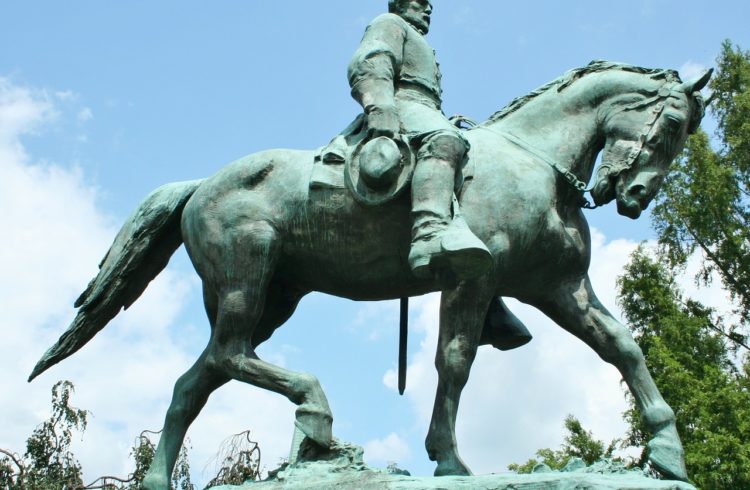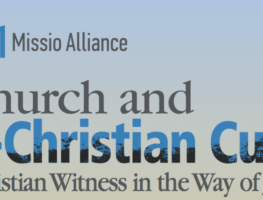The images of Charlottesville were constant reminders of yet another divide that this country finds itself in. I am not surprised or overly concerned by the world’s response—because truly this is the result of sin and the wages of it. Sin is the harvest we reap outside of the will of God. The wages of sin is death; it may not come immediately, but it comes. And no amount of legislation, marches, protests, or laws can change the consequences of sin. Its effects and repercussions are imminent.
I am not surprised by the events of Charlottesville. Rather, I am surprised by the divisive response of the church.
There was a time (or maybe this is me romanticizing history to a degree) when I believed that defining sin was simple and plain. Admittedly, the church has, at times, stood on the wrong side of issues, but history is sometimes a great teacher, and this is the time we should be able to get it right. Despite the manipulation of media, political pundits, and the tapestry of cynicism spewed on social media platforms, I look to the leaders of churches to stand for righteousness, to speak truth in love, and to move the King’s agenda forward. I have been disappointed, specifically in these three areas:
Opinions and culture are louder than the Gospel itself.
We are quick to categorically define abortion and homosexuality as sin, but it appears recently that defining racism or its various mutations has become more difficult. Images of Charlottesville were plastered throughout social media platforms. I witnessed opinionated pastors become eerily silent. This became a disturbing trend as if racism was the “third rail” of our faith. It becomes disheartening when my peers spread their political affiliations more than they spread the Gospel. Instead of echoing the sentiments of Christ, we echo the voices of Washington. We find ways to challenge “what we see” as oppose to being charged with what we heard via the scriptures. At any given moment, our culture groans and complains about its ills – images of slain motorists, generalizations of police, marches of hate (or subtle forms of it) draws our attentions to our divided camps. Trenches are built, walls erected, as we bunker down in not fighting or contending for the faith but the expressions of our opinions, politics, or grievances. Charlottesville cannot be viewed with isolationist lenses but must be viewed within the context of scripture and the Cross. The silence of opinionated pastors during Charlottesville became a disturbing trend. Click To Tweet
Culture is creating its own leaders who operate outside the wisdom of the Holy Spirit. They cannot adequately address the challenges that this nation faces. But as leaders of God’s Holy Church, we can. Despite the vitriol displayed and spewed from the mouths of some of our white brothers (white supremacists, Neo-Nazis, militia and other hate groups), it has become apparent that there are so many layers of Charlottesville seen solely from the lens of the Church that make it difficult for some clergy to speak out against the sin of racism. What has caused such a delayed response or the need not to address it in our congregations? This lies at the heart of my discontent. The Gospel is our example. Jesus is our leader. Sin and all its manifestations must be addressed. God has given us a platform to which we must stand on the hope of His Word, the strength of His name, and the power of His resurrection.
Silence feeds racism.
I literally thanked each white pastor who condemned hate in any form but especially the racial undertones exposed by Charlottesville protestors. To me, it was very important that white pastors spoke in clear terms about racism, prejudice, and stereotypes. Political correctness has caused some of us to feel forced to cower and yet we are still called to stand for what is right and stand up against what is wrong. We prefer to chastise the culture with claims of righteousness embodied by statutes, but cannot address the hidden sins of professing Christians. It is our duty to respond to the call and re-introduce to some of our congregants a redeeming Savior. That the subtlety of racism can be found in our hearts is arguably one of the most polarizing examples of the “Divided Church of America.” The cascade of silence stunned me. It has literally caused some of us to shun speaking directly and clearly about sin, its trappings, and the need to eradicate it through the power of Jesus Christ.
I don’t assume that just because pastors did not post on social media that they did not address their congregations. Still, staying silent on social media harms the greater body of Christ. And in the aftermath of Charlottesville, I was searching for white brothers and sisters who were standing up when I felt my knees knocked out from under me. Will white Christians stand up when minorities feel knocked on their knees? Click To Tweet
Subtle forms of racism manifest frequently within the church.
Diversity can become a diversion from racial reconciliation. I sincerely believe that it is important to recognize that having a diverse church does not mean you are on a fast track to racial reconciliation. However, being colorblind is not the answer because it simply ignores the beauty of God’s creation. The subtlety of racism can manifest itself quite frequently in our churches. Having minorities play a role in the function of a church (on the worship team, greeters, etc) without true leadership positions is one indicator of a greater issue.
Some pastors also make the assumption that a minority pastor can reach and attract minorities. This assumption plays into generalities and stereotypes under the guise of wanting to “reach our community”. This doesn’t make you a Neo-Nazi but it can be an indicator of a greater failure to recognize that any group is not homogenous. Simply put, all black people don’t think or act the same. Strategically placing minorities in position to simply attract minorities isn’t the answer – but it is often utilized. This tokenism rarely produces adequate fruit.
Minorities are much more than the collection of the dominant culture’s ideas about us. We must recognize Imago Dei — the image of God that we all represent as not only moral truth but a theological truth as well. We must admit that some of our experiences are based on inerrant historical biases that did not leave at conversion. Prejudices and biases exist in many forms, nestling quietly in the pews of many churches, as leaders refuse to awaken the congregation to it. Community exposes us to our biases that may be rooted in racial undertones—but only if our community is larger than variations of our own color. We must actively seek out fellow believers beyond the Sunday gatherings. It is not enough to lift hands in sanctuaries and to use diversity as a means to market to the community. We must have crucial conversations which are often unpleasant and uncomfortable. To merely suggest that we want our church to reflect how heaven will be without the work of reconciliation is disingenuous at best, deceptive at worst. Without the hard work of reconciliation we are disingenuous at best, deceptive at worst. Click To Tweet
It is my hope that Charlottesville is a catalyst for leaders to create a dialogue, and that it wakes leaders up to the need to address the glaring problem seldom talked about in church. As Christians, we understand that the removal of statues does not solve racism. However, the inability for defenders of the same statues to not see the offensive nature to minorities is equally troubling. This does not mean we should simply tear them down, but when the defense of monuments is well articulated above and in place of the Gospel, the Church needs to step back and see its mission has drifted. When the defense of monuments is articulated above the Gospel, mission has drifted. Click To Tweet
Perhaps church leaders could never see themselves as the extreme embodiments of racism, like torch-bearing Neo-Nazis. This does not mean they can dismiss their own tendencies toward prejudices and the subtleties of racism that are alive and well within church walls.



Missio Alliance Comment Policy
The Missio Alliance Writing Collectives exist as a ministry of writing to resource theological practitioners for mission. From our Leading Voices to our regular Writing Team and those invited to publish with us as Community Voices, we are creating a space for thoughtful engagement of critical issues and questions facing the North American Church in God’s mission. This sort of thoughtful engagement is something that we seek to engender not only in our publishing, but in conversations that unfold as a result in the comment section of our articles.
Unfortunately, because of the relational distance introduced by online communication, “thoughtful engagement” and “comment sections” seldom go hand in hand. At the same time, censorship of comments by those who disagree with points made by authors, whose anger or limited perspective taints their words, or who simply feel the need to express their own opinion on a topic without any meaningful engagement with the article or comment in question can mask an important window into the true state of Christian discourse. As such, Missio Alliance sets forth the following suggestions for those who wish to engage in conversation around our writing:
1. Seek to understand the author’s intent.
If you disagree with something the an author said, consider framing your response as, “I hear you as saying _________. Am I understanding you correctly? If so, here’s why I disagree. _____________.
2. Seek to make your own voice heard.
We deeply desire and value the voice and perspective of our readers. However you may react to an article we publish or a fellow commenter, we encourage you to set forth that reaction is the most constructive way possible. Use your voice and perspective to move conversation forward rather than shut it down.
3. Share your story.
One of our favorite tenants is that “an enemy is someone whose story we haven’t heard.” Very often disagreements and rants are the result of people talking past rather than to one another. Everyone’s perspective is intimately bound up with their own stories – their contexts and experiences. We encourage you to couch your comments in whatever aspect of your own story might help others understand where you are coming from.
In view of those suggestions for shaping conversation on our site and in an effort to curate a hospitable space of open conversation, Missio Alliance may delete comments and/or ban users who show no regard for constructive engagement, especially those whose comments are easily construed as trolling, threatening, or abusive.